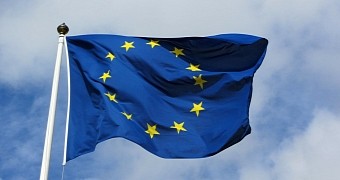European and US officials announced yesterday the creation of a new data transfer agreement called Privacy Shield that will replace the previous deal, Safe Harbour, after EU's highest court declared it illegal last year in October.
There are very few differences between the two deals, and Privacy Shield will still allow US companies to siphon data out of European countries and send it for storage in their data centers in the US.
The previous Safe Harbor agreement was struck down this past October, after numerous revelations about the US' aggressive mass surveillance operations, which also included European citizens by going after their data stored on US soil.
During negotiations, the European Commission specifically asked for special provisions that would keep US agencies in check and from monitoring EU consumer data.
EU required the US to put a muzzle on its intelligence agencies
"For the first time ever, the United States has given the EU binding assurances that the access of public authorities for national security purposes will be subject to clear limitations, safeguards and oversight mechanisms," said EU Commissioner Věra Jourová.
The EU and the US will conduct annual reviews to see if these assurances have been kept. Additionally, the US has said it plans to impose more measures intended to limit easy access to Europeans' data to US agencies.
But US companies will also have to change how they handle data originating from the EU. Each company will have to publish a legal document that shows its commitment this new agreement, which binds them under US law by the US Federal Trade Commission. This means that any privacy slip-up with EU data will eventually bring a fine back home in the US, not just on foreign soil.
Additionally, US companies handling human resources data from Europe will also have to abide by EU data protection laws.
The previous Safe Harbor agreement was introduced in 2000 to simplify the process of moving data across borders and to avoid EU's complicated Data Protection Directive.
The new Privacy Shield agreement will be finalized in the coming weeks, giving the US time to prepare a new legal framework for monitoring the activity of US intelligence and US companies, and also appoint a new Ombudsman.

 14 DAY TRIAL //
14 DAY TRIAL //